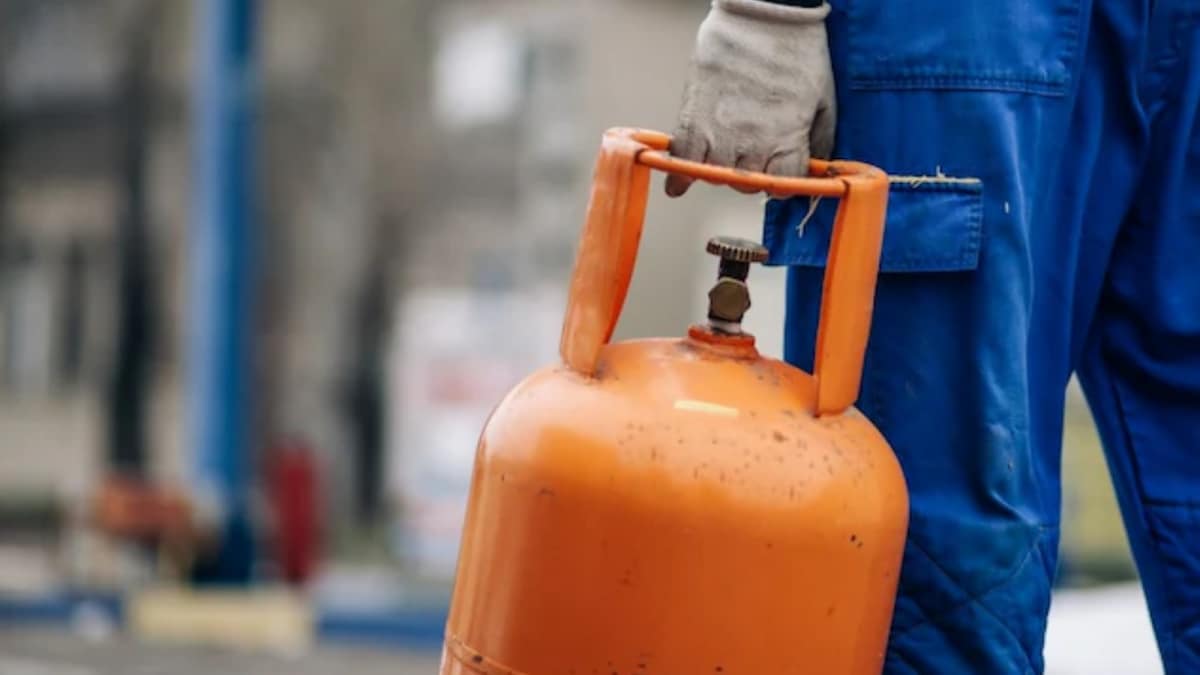Last Updated:
Tired of your gas cylinder running out early? These 8 easy kitchen tips can help extend its life by up to 20 days, saving both time and money.

A weak flame or unnoticed gas leak can cause your cylinder to run out quickly, so regularly check the joint and nozzle, and have any low or flickering flame inspected promptly. (News18)
With the rising cost of gas cylinders, it has become more important than ever to use them wisely. A few small changes in the kitchen can help you conserve gas, speed up cooking, and save money. Sometimes, cylinders that are supposed to last a month run out in just 20 days, leaving us scrambling for a replacement. By adopting a few efficient cooking habits, you can extend the life of your gas supply. Here are some practical and effective tips:
- Use Lids Efficiently: Always cook with the lid on. This traps steam and heat, allowing food to cook faster and significantly reducing gas usage. Whether you’re making rice, vegetables or lentils, this simple trick makes a big difference.
- Choose the Right Pot Size: Avoid using large pots for small portions of food. Smaller pots heat up more quickly and evenly, reducing gas consumption and cooking time.
- Make the Most of Pressure Cookers: Pressure cookers are a great tool for saving gas. Use them for cooking lentils, rice, vegetables, or soups. Ensure you’re using the correct water ratio and that the lid is properly sealed for maximum efficiency.
- Regularly Check for Leaks and Weak Flames: A weak flame or unnoticed gas leak can lead to rapid gas depletion. Periodically check the cylinder joint and nozzle, and if the flame seems low or inconsistent, have it inspected immediately.
- Prepare Ingredients Beforehand: Having vegetables chopped and spices ready before turning on the gas helps reduce the time your burner is on. This not only speeds up cooking but also prevents unnecessary gas wastage.
- Maintain Proper Height Between Flame and Pot: Ensure the cooking pot is at an optimal distance from the flame. If it’s placed too high, it takes longer to cook. The right height allows efficient heat transfer and quicker cooking.
- Ensure Efficient Cooking: Ensure efficient cooking by keeping the lid on when possible and simmering instead of boiling to conserve gas and speed up food preparation. Cooking without a lid allows heat to escape, prolonging cooking time and increasing gas usage. Keep dishes covered unless the recipe specifically requires otherwise.
- Cook in Smaller Portions: Large portions take longer to cook and consume more gas. Where possible, cook in smaller batches to reduce gas usage and speed up the process.
Save Gas, Save Money
By following these simple tips, that is, using lids, choosing smaller cookware, relying on pressure cookers, and checking for gas leaks, you’ll stretch your gas cylinder further, cook more efficiently, and reduce your kitchen expenses without compromising on meals.







